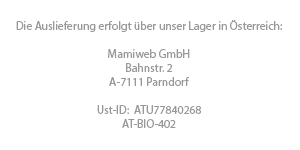Positive effects of Haritaki for the skin
Terminalia Chebula: Skin
Scientific experiments and studies that underline the postive effects of Haritaki for the skin.
Several studies have found that Haritaki extracts can mitigate and effectively treat skin damage and rashes.
Standardized Terminalia chebula Fruit Extract: A Natural Ingredient That Provides Long-Lasting Antioxidant Protection and Reverses Visible Signs of Pollution-Induced Skin Damage
Clinical, Cosmetic and Investigative Dermatology 2021 Sep 17;14:1257-1269. doi: 10.2147/CCID.S326492. eCollection 2021.Chemical and cell-based in vitro studies were performed to characterize long-lasting antioxidant and anti-inflammatory properties; a clinical study with subjects with normal to dry skin living in a high-pollution city for the previous 5 years was conducted to assess if a formulation containing 1% standardized TC fruit extract affected significant improvements in skin's visible condition and appearance compared with its placebo. Results: The standardized TC fruit extract provided longer-lasting and more efficient neutralization of reactive oxygen species (ROS) than tocopherol; treatment of keratinocytes with the fruit extract prior to being stressed with urban dust safeguarded against increases in intracellular ROS, inhibited release of inflammatory cytokines IL-6 and IL-8 and protected membrane lipids against peroxidation. A clinical study yielded statistically significant improvements in dermatologist scores and subject self-assessments for skin texture, hydration, tone, firmness and radiance as compared to its placebo. Conclusion: These studies validate the use of this standardized TC fruit extract not only as a restorative to diminish visible signs of existing damage but also as a preventative to help defend skin against damages caused by chronic exposure to environmental pollution.
[Link to the scientific study]Mitigation of 2,4-dinitrofluorobenzene-induced atopic dermatitis-related symptoms by Terminalia chebula Retzius
International Journal Molecular Medicine 2011 Dec;28(6):1013-8. doi: 10.3892/ijmm.2011.792. Epub 2011 Sep 7.To evaluate whether an aqueous seed extract of Terminalia chebula Retzius inhibited development of atopy in vivo, we used a 2,4-dinitrofluorobenzene (DNFB)-induced animal model of atopic symptoms to investigate the effects of the extract. We measured CD4+ cell numbers by hematoxylin and eosin (H&E) staining, and determined the expression levels of matrix metalloproteinase (MMP)-9, interleukin (IL)-31, and T-bet genes, in this animal model. The data showed that a Terminalia chebula extract (100 µg/ml) exhibited strong anti-atopic activity, mediating a 52% reduction in the immune response, as measured by thickness of ear swelling, and resulting in decreased eosinophil levels in adjacent skin tissue. Collectively, the results indicate that a Terminalia chebula seed extract has potential for alleviation of atopy-like symptoms induced by DNFB in the mouse.
[Link to the scientific study]Ethanol extract of Terminalia chebula fruit protects against UVB-induced skin damage
Pharmaceutical Biology 2016 Nov;54(11):2701-2707. doi: 10.1080/13880209.2016.1179768. Epub 2016 May 24.This purpose of this work was to study the effects of the ethanol extract from T. chebula fruit on the inhibition of cutaneous photodamage. Materials and methods: The viability of human skin fibroblasts after incubation with T. chebula at concentration 0.5-50 µg/mL for 24, 48 and 72 h was assessed by using sodium 3'-[(phenyl-amino)-carbonyl]-3,4,tetrazolium-bis(4-methoxy-6-notro)benzene-sulphonic acid hydrate (XTT). The levels of type I procollagen and matrix metalloproteinases (MMP)-1 and MMP-13 produced by UVB-irradiated fibroblasts were determined by ELISA. Skin thickness and collagen content caused by long-term UVB irradiation in male ICR mice were determined from haematoxylin and eosin stained tissue sections and spectrophotometric measurement of hydroxyproline. Results: The extract (0.5-50 µg/mL) had no effect on cell viability or morphology of the human fibroblasts. In vitro studies showed that the T. chebula extract reduced the UVB-induced MMP-1 and MMP-13 expression, whereas an increased production of type I procollagen was observed. In a UVB-irradiated animal model, male ICR mice with hair shaved were chronically exposed to UVB which lead to epidermal thickness and loss of hydroxyproline. However, these effects were fully prevented by the topical application of the T. chebula ethanol extract. Discussion and conclusion: These data suggested that the T. chebula ethanol fruit extract is an efficacious pharmaceutical protectant of skin against photodamage.
[Link to the scientific study]



